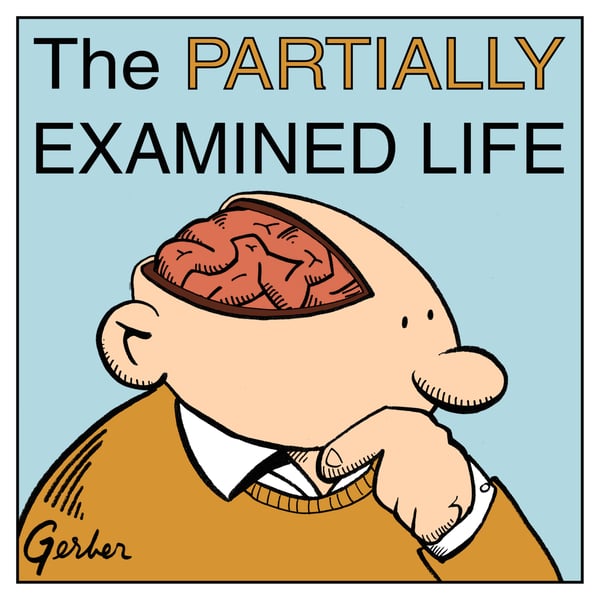Ep. 366: Edith Stein on Empathy (Part Two)
The Partially Examined Life Philosophy Podcast
Mark Linsenmayer
4.6 • 2.3K Ratings
🗓️ 12 May 2025
⏱️ 50 minutes
🧾️ Download transcript
Summary
Continuing on The Problem of Empathy. What does it mean to say that we know other people's mental states "non-primordially"? We talk about Stein's project of explaining how empathy is possible, what it gets us, and how her answers differ from Scheler's.
Get more at partiallyexaminedlife.com. Visit partiallyexaminedlife.com/support to get ad-free episodes and tons of bonus discussion.
Sponsor: Get a $1/month e-commerce trial at shopify.com/pel.
Transcript
Click on a timestamp to play from that location
| 0:00.0 | Hey, you're listening to the partially examined life episode 366 part two. |
| 0:12.4 | We have been discussing Edith Steins on the problem of empathy. |
| 0:16.8 | And she had said that empathy was the non-primorial experience of other people's mental life of their emotions specifically. |
| 0:26.4 | I guess I wanted to, just before we get into more of the text, ask, I compared it to epistemology of people saying, well, a direct realist would say I directly experience the objects |
| 0:39.4 | in the world, an indirect realist, no, I only perceive my own representations. And those, I think, |
| 0:46.1 | represent the things out in the world. Why do you think, I mean, is that distinction and the problems |
| 0:50.9 | with that, why she wants to use this primordiality as opposed to |
| 0:54.6 | indirect? In other words, do I, I directly am perceiving my own experience now. I'm indirectly |
| 1:00.8 | perceiving my past memory because I'm perceiving it through the lens of my memory. I'm indirectly |
| 1:07.2 | perceiving your mental states because I'm perceiving it through the lens of your bodily |
| 1:11.7 | expression, something like that. I mean, could she have used indirect and direct just as easily as |
| 1:15.9 | primordially or not? I don't know. I don't like that. Direct and indirect to me has a slightly |
| 1:22.7 | different connotation or just like I was saying, like talking about mediated versus unmediated. |
| 1:28.5 | I feel like what she's trying to drive at is something more like, boy, it's hard to characterize. |
| 1:34.4 | Again, I can only, I think of it in terms of the structure of intentionality, that in every |
| 1:39.7 | experience, there will be something that is immediately present, that is the direct object of the intentional |
| 1:48.4 | conscious experience, whatever that may be. And in that sense, it has a privileged relationship |
| 1:54.9 | to the I, which we call primordiality. But maybe connecting it to our own body would help make more sense of |
| 2:05.0 | it because she uses the term content, right? It's like the content of the experience can be |
| 2:10.9 | primordial or non-primordial in some sense. The experience itself is always primordial. But really what |
| 2:16.6 | she's driving at is like, is this phenomena an experience that the |
| 2:21.7 | eye is having in a direct intentional relationship with its own perceptual or cognitive mechanism? |
... |
Please login to see the full transcript.
Disclaimer: The podcast and artwork embedded on this page are from Mark Linsenmayer, and are the property of its owner and not affiliated with or endorsed by Tapesearch.
Generated transcripts are the property of Mark Linsenmayer and are distributed freely under the Fair Use doctrine. Transcripts generated by Tapesearch are not guaranteed to be accurate.
Copyright © Tapesearch 2025.

